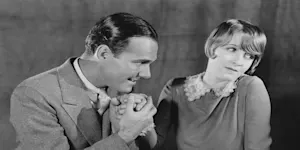What Makes This Word Tick
The word "eschew" is not your everyday vocabulary—it's the refined cousin of "avoid." It carries with it a sense of deliberate decision, implying a careful choice to steer clear from something, often on the grounds of morality or principle. It's like when you skip the doughnuts at the morning meeting because you're on a health kick.
If Eschew Were a Person…
Imagine Eschew as the cultured friend who meticulously examines every ingredient on a menu before choosing the most health-conscious option. This person rarely acts on impulse; they plan their moves with thoughtfulness and a sense of purpose.
How This Word Has Changed Over Time
While "eschew" has largely kept its meaning through the centuries, coming from Old French "eschiver," its use has become somewhat archaic. Nowadays, folks prefer simpler synonyms like "avoid" or "steer clear of," proving once again that in the world of words, simplicity often wins out.
Old Sayings and Proverbs That Use Eschew
You won’t find “eschew” making cameos in many proverbs, but its spirit of avoidance has surely figured into timeless advice like “look before you leap” or “better safe than sorry.” Moral of the story? It’s all about conscientious choices.
Surprising Facts About Eschew
"Eschew" has never been a crowd-favorite on the Scrabble board, but it certainly scores high as an intellectual nugget in verbal exchanges. It's a word with an air of sophistication that often sneaks into legal texts and philosophical discussions where precise language matters.
Out and About With This Word
You might encounter "eschew" in formal writings, especially when discussing dietary habits, ethical decisions, or philosophical texts. Writers eschew casual language to give their words weight, weaving in gravitas with this deliberate term.
Pop Culture Moments Where Eschew Was Used
Though "eschew" holds a backseat role in pop culture, you might have seen it pop up in satirical news or witty TV shows, where characters eschew mainstream habits for comedic effect. Think of those eccentric personas in shows like "Frasier" or a Wes Anderson film!
The Word in Literature
"Eschew" finds itself at home in classic literature, used by authors aiming to lend an air of gravitas to their characters' decisions. It might appear in the dialogues of Austen characters or perhaps in the introspective musings found in a James Joyce novel.
Moments in History with Eschew
The nonviolent protests of the 1960s could well have been guided by a philosophy to "eschew" violence. This word echoes in the great decisions of history where people consciously chose to avoid paths well-trodden in favor of less destructive trails.
This Word Around the World
In France, you'd "éviter" what you want to eschew. In Spanish, it's "evitar." Globally, the concept is evenly shared: a deliberate turning away from what one finds disagreeable or unworthy. It's like the universal understanding of an unspoken, worldwide shrug.
Where Does It Come From?
"Eschew" has its etymological roots in the Old French "eschiver" and the Germanic "skiuh–," both meaning to shun or avoid. It’s a word that’s traveled through linguistic time to carry the same meaningful caution across centuries.
How People Misuse This Word
Sometimes, folks might misuse "eschew" by pairing it with trivial choices, such as saying they "eschew" a particular lunch option, when simply saying they avoided it would do. Remember, "eschew" deserves gravitas!
Words It’s Often Confused With
Avoid: More common and less formal, focused on evading something.
Evasive: Suggests more about avoiding directness than action.
Evade: Implies escaping, often from an obligation or danger.
Additional Synonyms and Antonyms
Synonyms for "eschew" might include "shun," "abstain from," and "refrain from." Its antonyms would be "embrace," "welcome," and "accept."
Want to Try It Out in a Sentence?
Try this one: "She decided to eschew the usual holiday crowds by booking a secluded cabin in the woods, surrounded by nothing but the serene winter landscape."
















